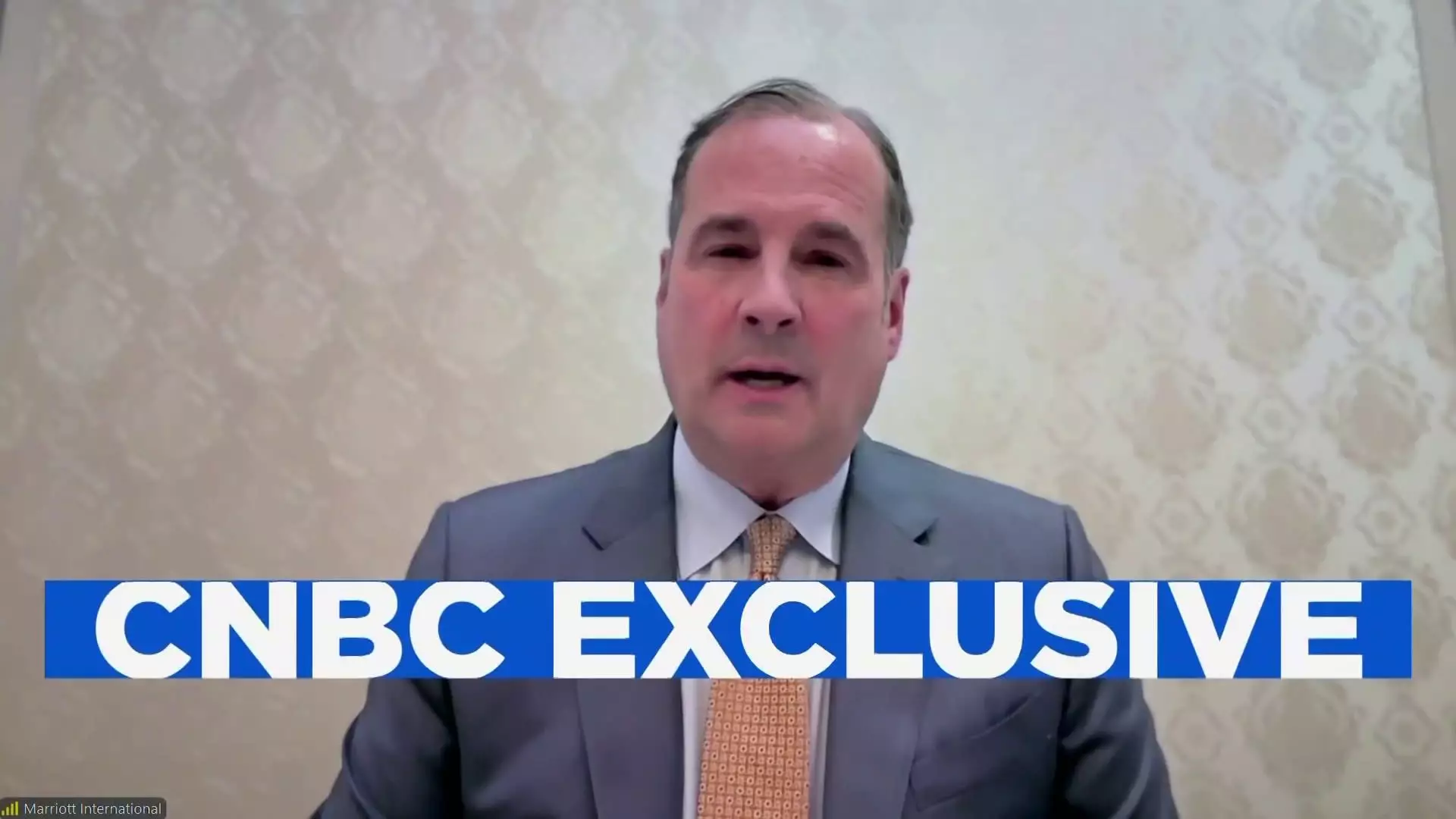Marriott International continues to navigate a complex landscape, marked by layoffs and challenges in markets like China. Despite these hurdles, CEO Anthony Capuano recently communicated a broad sense of optimism about the company’s performance during an interview with CNBC, asserting that their operations are strong across various regions. With recent reports indicating that more than 800 corporate staff members have been laid off, it raises the question of how a company experiencing such drastic staff reductions can claim it is “firing on all cylinders.”
What is apparent is that the performance metrics are mixed. A reported global revenue per available room (RevPAR) increase of 3% aligns with ongoing positive trends in domestic markets; however, the 8% decline in RevPAR from China—a crucial market—is a significant concern. Capuano remains confident, suggesting that this downturn is temporary and that domestic tourism in China is showing signs of recovery. Such confidence is supported by an impressive uptick in hotel signings for early 2024, underscoring a potential rebound in the Chinese travel and tourism sector.
Capuano highlighted a record number of hotel signings in the first half of 2024, which is notable considering the broader context of China’s sluggish tourism recovery. By signing more deals during this period than any other in history, Marriott appears to be banking on a resurgence in travel as public and private sector entities move to capitalize on long-term growth potential. This strategic positioning, combined with a look toward the metrics of international inbound travel, suggests a forward-thinking approach that could lead to future success.
Moreover, Capuano’s remarks on cross-border travel becoming a larger portion of Marriott’s business hint at a renewed vibrancy in international tourism. With numbers surpassing pre-pandemic levels, one can speculate that as airline capacities continue to restore in Greater China, Marriott stands ready to benefit from the renewed influx of travelers.
In the context of corporate restructuring, the recent layoffs signal a significant shift in Marriott’s operational strategy. Capuano’s explanation indicates that these job cuts are not merely a reaction to financial strains but part of a broader initiative to decentralize decision-making. As Marriott expands into new territories—now in 60 additional countries—an adaptive local market approach is essential for agility and responsiveness.
While this restructuring raises concerns about employee morale and company culture, it is strategically aimed at enhancing nimbleness and operational efficiencies. Capuano emphasized that these changes will not compromise service at the hotel level, which should be reassuring for guests and industry stakeholders alike. Instead, the goal is to streamline operations at the corporate level to better serve the varying demands of regional markets.
Marriott’s recent performance also highlights a significant growth in its loyalty program, Bonvoy, with a staggering nine million new members added in a single quarter. This growth is reportedly due to strategic partnerships with prominent brands like Uber and Starbucks, enhancing customer engagement and loyalty. Such initiatives reflect an understanding of market dynamics and a commitment to adapting to customer preferences while simultaneously expanding revenue streams.
As Marriott embarks on an initiative to reduce operating costs by an estimated $80 million to $90 million annually through efficiency measures starting in 2025, one must consider whether the expected savings can be realized without negative impacts on service quality or employee satisfaction.
While Marriott International faces significant challenges, particularly regarding layoffs and the struggles within major markets such as China, the company appears to be looking ahead with a clear vision. By embracing decentralization, intensifying focus on international tourism, and expanding loyalty programs, they aim to recalibrate their business model in a post-pandemic world. Marriott’s future direction will depend on the successful execution of its strategic initiatives while managing the increasingly complex global travel landscape. Thus, it remains to be seen how effectively the company can maintain its commitment to both efficiency and excellence in service.


Leave a Reply